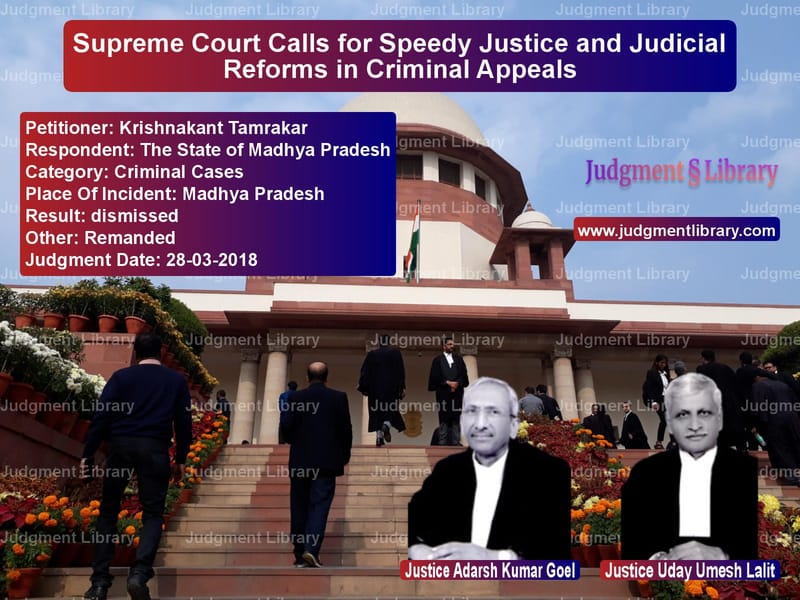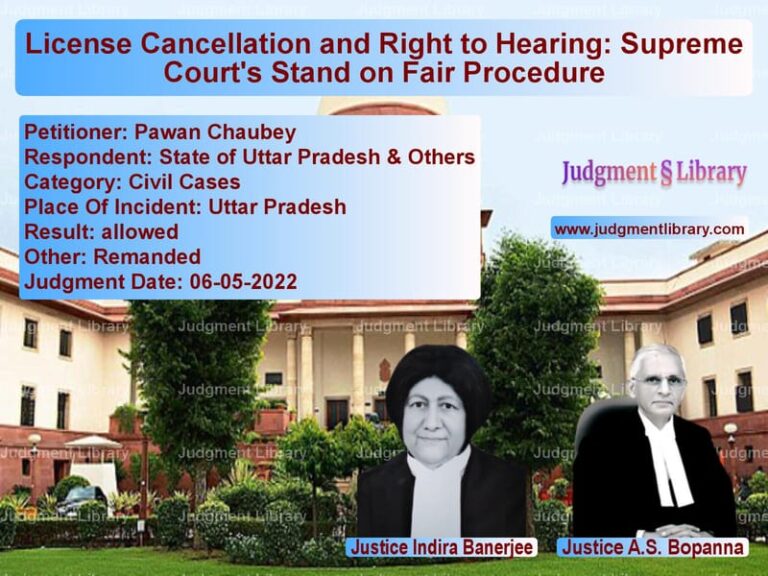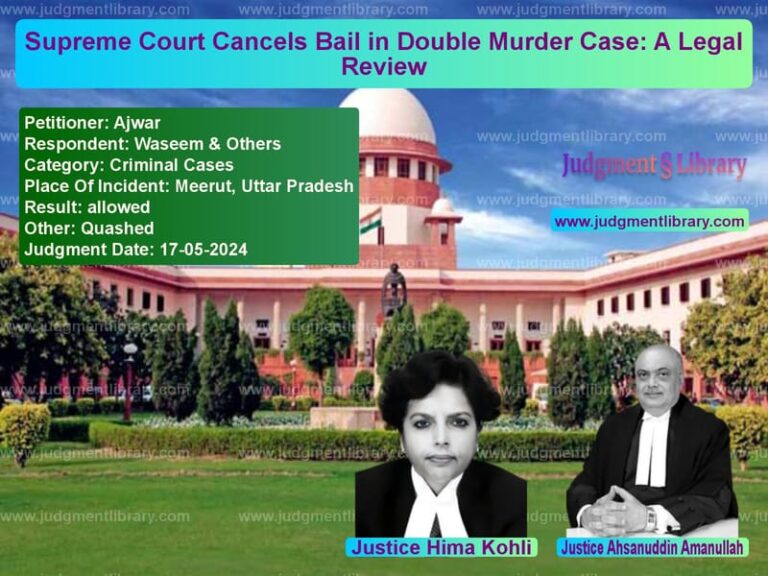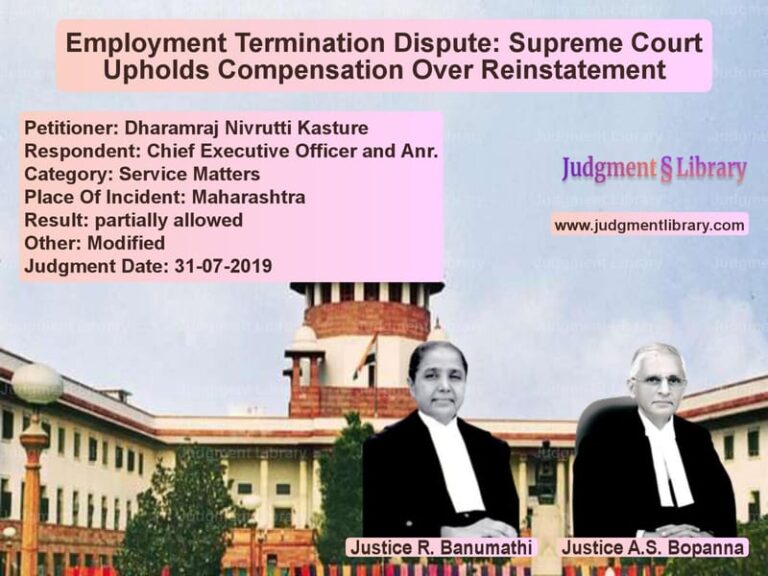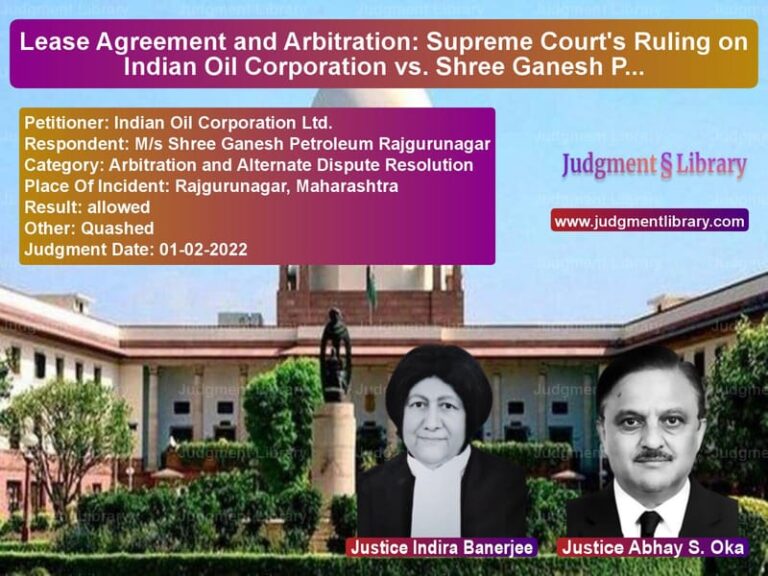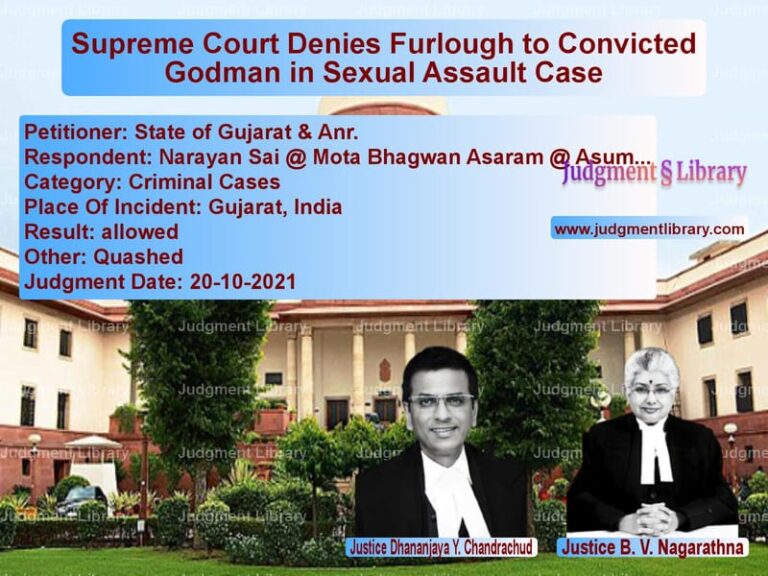Supreme Court Calls for Speedy Justice and Judicial Reforms in Criminal Appeals
The Supreme Court of India, in Krishnakant Tamrakar v. The State of Madhya Pradesh, addressed the critical issue of delays in criminal appeals and the broader need for judicial reforms. The Court examined the structural inefficiencies in the judicial system, the impact of judicial vacancies, and the challenges posed by frequent strikes by lawyers.
Background of the Case
The case stemmed from an appeal by Krishnakant Tamrakar, who had been convicted under Sections 148, 302/149 IPC and sentenced to life imprisonment. The appellant had been in custody for more than ten years, and his appeal against the conviction was pending before the High Court of Madhya Pradesh.
The appellant moved the Supreme Court arguing that prolonged incarceration without a timely hearing of his appeal rendered his right to legal redress meaningless.
Key Events
- June 23, 2005: Incident leading to the appellant’s conviction occurred.
- Trial court convicted and sentenced the appellant to life imprisonment.
- High Court rejected multiple bail applications.
- Appellant approached the Supreme Court citing prolonged incarceration.
- Supreme Court took cognizance of the larger issue of judicial delays and issued notice to the Attorney General and the National Mission for Justice Delivery and Legal Reforms.
Legal Issues Before the Supreme Court
- Whether prolonged delay in hearing criminal appeals violates the right to speedy justice.
- Whether systemic reforms are necessary to ensure timely disposal of criminal cases.
- Whether judicial vacancies and infrastructure gaps contribute to the delay in criminal justice.
- Whether frequent strikes by lawyers obstruct access to justice.
Arguments of the Parties
Petitioner’s (Krishnakant Tamrakar’s) Arguments
- The appeal had been pending for over ten years, making a mockery of the right to a fair trial.
- The continued delay in disposal of appeals resulted in injustice to convicts whose cases remained unheard.
- The legal system should prioritize hearing of old criminal appeals.
Respondent’s (State of Madhya Pradesh’s) Arguments
- The appellant was convicted based on strong evidence.
- The High Court had considered the matter and rightly denied bail.
- The issue of judicial delays was a policy matter requiring structural reforms.
Supreme Court’s Analysis and Judgment
The Supreme Court bench, comprising Justice Adarsh Kumar Goel and Justice Uday Umesh Lalit, took an expansive approach to the issue, addressing both the appellant’s case and the broader challenges of judicial delays.
1. Right to Speedy Justice
The Court reaffirmed that access to justice is a fundamental right under Articles 14 and 21 of the Constitution. It stated:
“The remedy of appeal will be meaningless if an appellant has to remain in custody for the full term of the sentence.”
The Court emphasized that appeals pending for more than five years should be prioritized and heard expeditiously.
2. Judicial Vacancies and Infrastructure Gaps
The Court criticized the slow pace of judicial appointments, stating:
“There is a dire need to increase the strength of judges, improve infrastructure, and fill judicial vacancies in a timely manner.”
It recommended that the government expedite appointments and consider setting up additional benches for criminal appeals.
3. Lawyer Strikes and Their Impact on Justice
The Court took a strong stance against frequent strikes by lawyers, observing:
“By every strike, irreversible damage is suffered by the judicial system, particularly consumers of justice. Access to justice is denied.”
It warned that such strikes obstruct justice and directed the Ministry of Law and Justice to monitor the impact of lawyer strikes and take necessary action.
4. Consideration of Alternative Mechanisms
The Court suggested the establishment of dedicated appellate tribunals to handle criminal appeals, thereby reducing the burden on High Courts. It also recommended better case management practices and the use of technology for speedy trials.
Final Judgment
The Supreme Court issued the following directives:
- The High Courts must prioritize disposal of criminal appeals pending for more than five years.
- The government should expedite judicial appointments and consider establishing additional appellate tribunals.
- Frequent strikes by lawyers should be addressed through regulatory mechanisms.
- The Ministry of Law and Justice must submit quarterly reports on judicial delays and measures taken to address them.
Impact of the Judgment
This ruling has significant implications for the judicial system:
- Expedited Criminal Appeals: High Courts are now expected to prioritize long-pending cases.
- Judicial Reforms: The ruling highlights the need for systemic improvements in case management and judicial infrastructure.
- Accountability for Lawyer Strikes: The Court’s observations may lead to stricter regulation of lawyer strikes.
Conclusion
The Supreme Court’s ruling in Krishnakant Tamrakar v. The State of Madhya Pradesh is a landmark decision reinforcing the right to speedy justice. By addressing delays in criminal appeals and calling for systemic reforms, the Court has taken a crucial step toward ensuring a more efficient and fair judicial process.
Petitioner Name: Krishnakant TamrakarRespondent Name: The State of Madhya PradeshJudgment By: Justice Adarsh Kumar Goel, Justice Uday Umesh LalitPlace Of Incident: Madhya PradeshJudgment Date: 28-03-2018
Don’t miss out on the full details! Download the complete judgment in PDF format below and gain valuable insights instantly!
Download Judgment: Krishnakant Tamrakar vs The State of Madhya Supreme Court of India Judgment Dated 28-03-2018.pdf
Direct Downlaod Judgment: Direct downlaod this Judgment
See all petitions in Bail and Anticipatory Bail
See all petitions in Legal Malpractice
See all petitions in Contempt Of Court cases
See all petitions in Judgment by Adarsh Kumar Goel
See all petitions in Judgment by Uday Umesh Lalit
See all petitions in dismissed
See all petitions in Remanded
See all petitions in supreme court of India judgments March 2018
See all petitions in 2018 judgments
See all posts in Criminal Cases Category
See all allowed petitions in Criminal Cases Category
See all Dismissed petitions in Criminal Cases Category
See all partially allowed petitions in Criminal Cases Category

